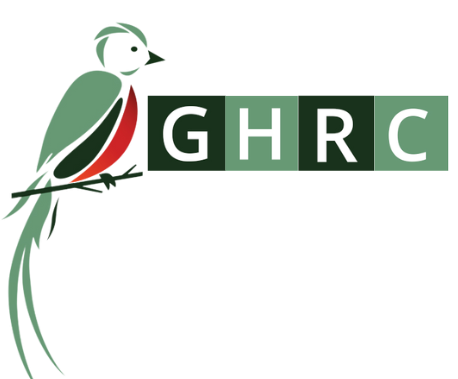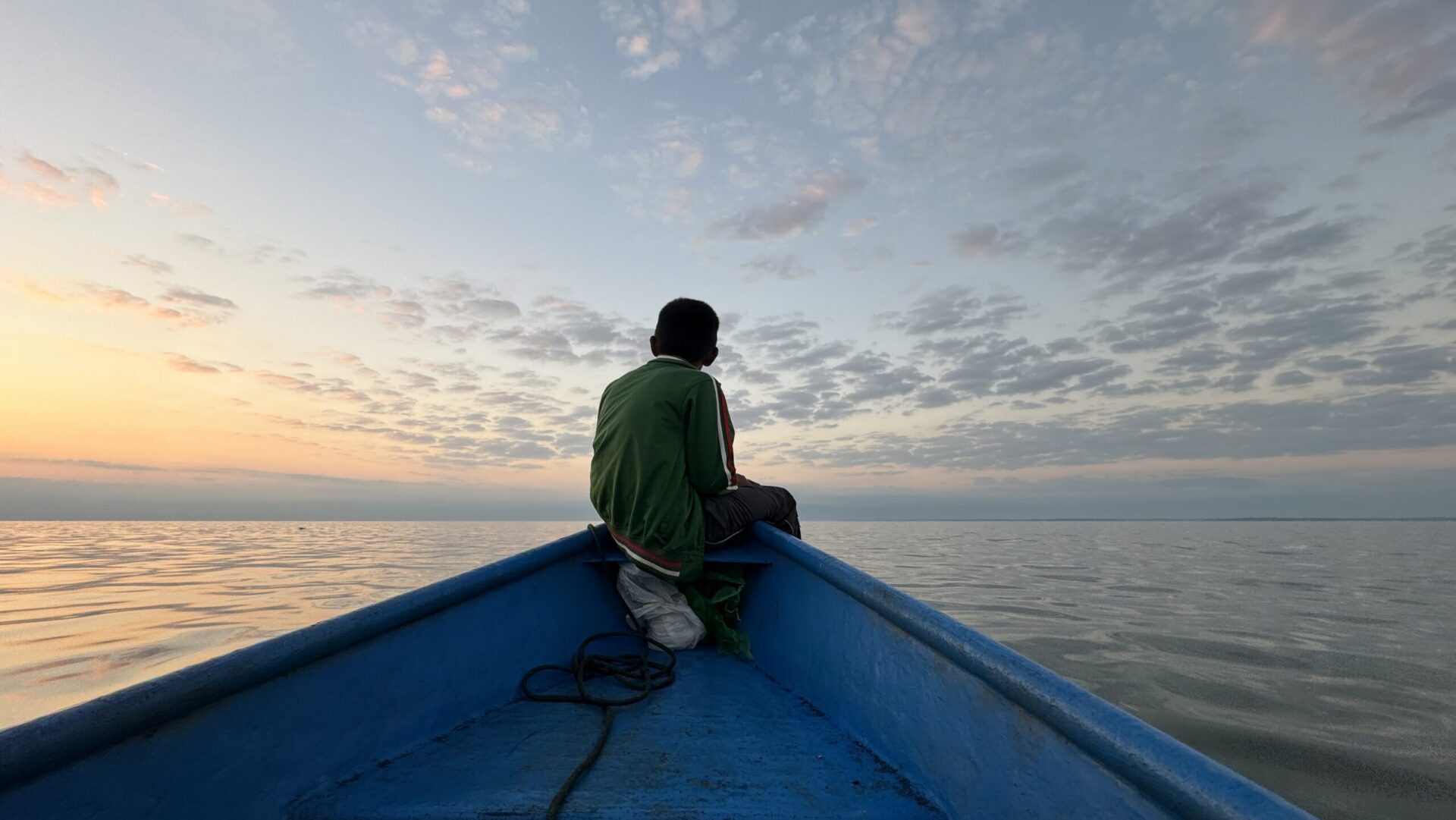In a historic victory for transitional justice, Judge Yassmin Barrios declared five former Civil Defense Patroler members guilty of crimes against humanity in the form against sexual violence against 36 Maya Achi women between 1981 and 1985. Judge Gervi Sical during the sentencing hearing stated, “It has been possible to establish disproportionate violence against these women, who were treated like animals, sexually violated and subjected to sexual slavery.” Gabriel Cuxum Alvarado, Bernardo Ruiz Aquino, Benvenuto Ruiz Aquino, Damián Cuxum Alvarado, Francisco Cuxum Alvarado will face 30 years in prison for the use of “physical and psychological force to its greatest extremes.”
Outside the tribunals, the women, their legal team from the Rabinal Legal Clinic and supporters who had gathered in solidarity with the women celebrated this important step in the fight against impunity in Guatemala. According to Haydee Valey of the Rabinal Legal Clinic, “Today we have a sentence that is very important. It’s a way of identifying the strength and the courage that these women had to break the silence and express what they suffered.” In a statement, United Nations Under Secretary General and Special Representative of the Secretary General on Sexual Violence in Conflict, Pramila Patten, congratulated the women, stating, “Their courage and determination are truly an inspiration, and show us that, despite many challenges, accountability efforts for sexual violence can succeed, are transformative, and must be pursued.”
On January 27, the case continued with a hearing to resolve the request for reparations filed by the women and their legal team. The court ordered 12 reparations measures to be granted to the survivors in the categories of financial compensation, rehabilitation, settlement, and guarantees of non-repetition. These measures include incorporating the story of the Achi women into the national curriculum, a formal apology from the Ministry of Defense, the development of sexual violence prevention trainings for security forces, and more. (Read the full list of reparations here.) In the words of one of the lawyers for the Maya Achi women, Lucia Xiloj, “[This legal victory] vindicates all those years of struggle during their search for justice.”
Taiwan Hires Lobbying Firm to Represent Guatemala
On January 12, Guatemalan Ambassador to the United States signed a 12-month contract with Brian Ballard of Ballard Partners. The Guatemalan government explained that the $900,000 arrangement–financed by Taiwan–is to “promote focus on strategic communication, investor outreach and promoting tourism.” Ballard has stated the firm’s only role is “strategic consulting and advocacy services.” During the Trump administration, Ballard Partners was described by Politico as “the most powerful lobbyist in Trump’s Washington.” The account will be overseen by three associates: the former Republican State Senator Jose Diaz; Justin Sayfie, former advisor for Florida Governor Jeb Bush; and Democrat Jon O’Hanlon.
This new deal comes on the heels of President Giammattei’s visit to Washington, DC where he gave the keynote address at an event hosted by the Heritage Foundation. The event happened to take place at the same time as the US Department of State’s Summit for Democracy, which Guatemala was not invited to. “We consider ourselves an ally and friend [of the United States], although some officials in this government don’t understand this in its true dimension,” Giammattei said, elaborating, “I’ll mention a couple of things that prove it: First, diplomatic relations with Taiwan, not China. We’re the last ones left in the region.”
Guatemala Rejects Offer for Assistance in the Upcoming Attorney General Election
On January 19, Swedish Ambassador to Guatemala Hans Magnusson, representing the G13 Donor Group–a group of countries that contribute aid to Guatemala, including the US–expressed the member countries’ interest in combating corruption and impunity in Guatemala. Specifically, the group invited representatives from the commission tasked with the selection of candidates for Attorney General, asking for a dialogue between the two groups to better understand the work of the commission, asking, “if there would be a way in which we could support you in the facilitation of your duties.” The government of Guatemala responded to the request, asking the group to avoid meddling in the election, “respect its laws, and not interfere in its internal affairs.”
Meanwhile, civil society organizations, in a press conference held outside of the Supreme Court of Justice on January 26, demanded the election commission “carry out a transparent process to elect a suitable person to perform the job in accordance with the law and that will not use their position to persecute judges.” The group drew on the example of Erika Aifán who current Attorney General Consuelo Porras has filed three requests against in the last month to remove her judicial immunity. In addition, they explained the devastating consequences of Consuelo Porras’ forced removal of Juan Francisco Sandoval from the Special Prosecutor’s Office Against Impunity (FECI) in July. Now, they said, FECI has shifted from fighting impunity to persecuting human rights defenders.
Consuelo Porras has come under the scrutiny of the international community, including the United States, for her actions subverting democracy and rule of law in Guatemala. The US Department of State (USDOS) cut aid to the Public Ministry in July, citing “lost confidence in the Attorney General and the intention to cooperate with the US government and fight corruption in good faith.” Going further, the USDOS added Consuelo Porras to the Engel List, stating that Porras “obstructed investigations into acts of corruption by interfering with criminal investigations.” The outcome of this election is considered especially important for the future of the relationship between the US and Guatemala in the fight against corruption.
Political Prisoner Bernardo Caal Completes Fourth Year Behind Bars
On January 30, Maya Q’eqchi’ human rights defender Bernardo Caal officially completed his fourth year in prison, criminalized for his work defending his ancestral territories against an illegally imposed hydroelectric project. Arrested in 2018, Caal was sentenced to seven years and four months for the alleged crimes of kidnapping and robbing four employees of the hydroelectric company OXEC in 2015. The charges, however, lack evidence and according to Erika Guevara-Rosas, Americas director at Amnesty International, “The proceedings against Bernardo show the same patterns of criminalization of human rights defenders that we have documented in the country for years.” Amnesty International named him a “prisoner of consc” in 2020 and in July 2021, UN experts warned that Caal’s health is deteriorating in prison. GHRC stands in solidarity with Caal, his family, his community, and all human rights defenders in Guatemala. We call upon the State of Guatemala to stop criminalizing defenders and release Caal immediately.
42 Anniversary of the Spanish Embassy Massacre
A commemorative event was held today to mark the 42nd anniversary of the Spanish embassy massacre. On January 31, 1980, a group of 34 protesters, consisting of Maya K’iche’ farmers, who formed part of the Campesino Unity Committee, and a number of students occupied the Spanish embassy to call attention to the massacres being carried out by the Guatemalan army. In response, 400 National Police officers surrounded the embassy, in spite of the Spanish Ambassador’s protest of the police presence, and broke down the doors with hatchets. Witnesses reportedly heard three shots and then an explosion, apparently of a gas canister that started the fire. The fire killed 37 people, including embassy staff, along with the students and campesinos. Currently, former head of the National Police, Pedro García Arredondo, who ordered that no one be allowed to escape the building, is serving a 90-year prison sentence after being convicted of crimes against humanity.

